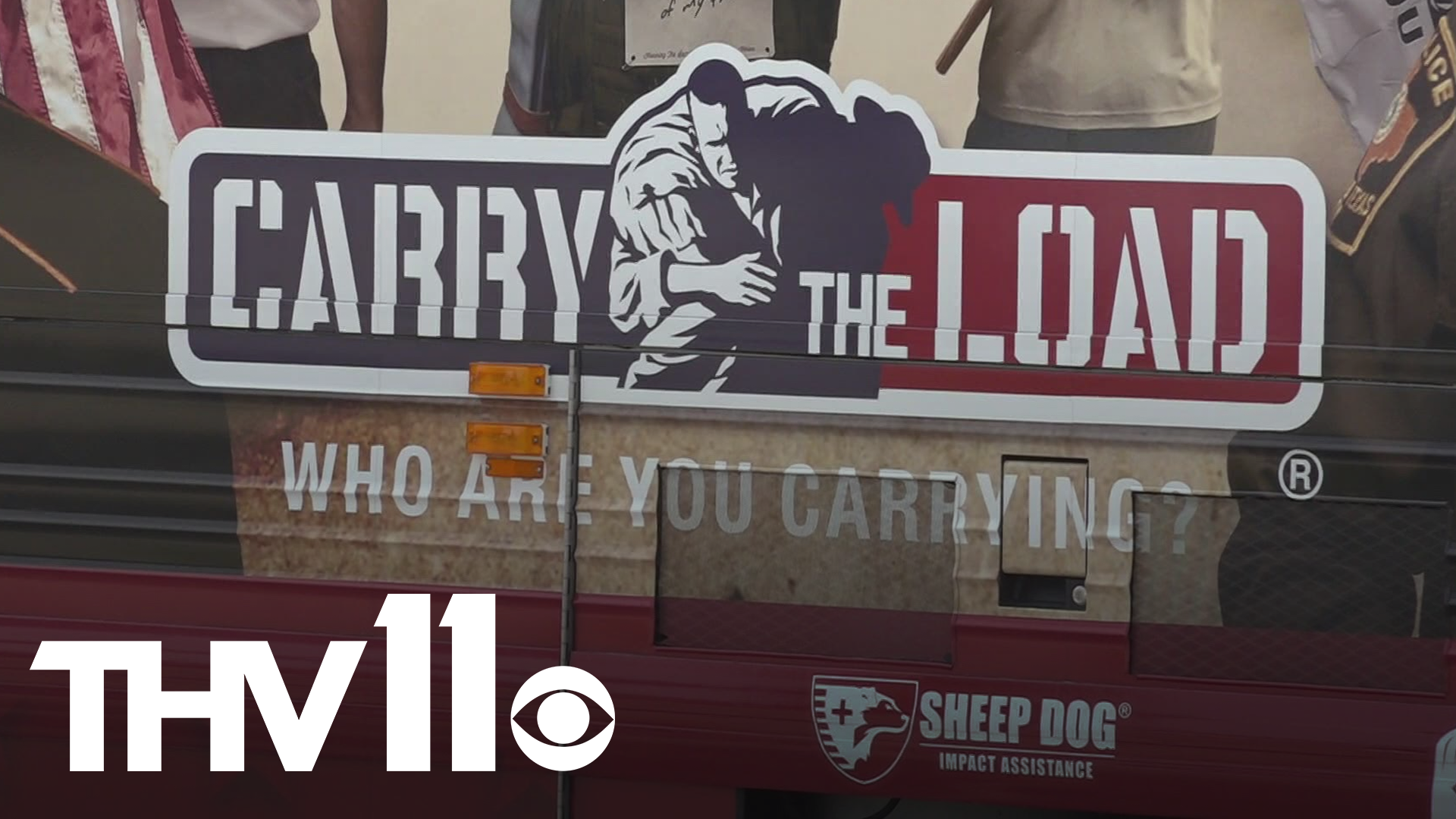LITTLE ROCK, Ark. — The journey of a thousand miles begins with a single step.
Or in this case, 1,500 miles and a lot more steps than we could count.
"We're doing anywhere from six to 20 miles, usually each person," Paul Shecklman, a medic with Carry the Load, a group dedicated to honoring service members and reiterating what Memorial Day means, said.
The group started at the beginning of May in West Point, New York, and have walked every day since.
"When you put what you're doing up against what they've been through, a lot of them have been carrying this for years," David Lindsey, the organizer for the eastern route, said.
Multiple routes are going on right now, encompassing all 50 states.
It all started 10 years ago when one of the founders asked his family a simple question.
"Having a discussion with his family, 'What are we gonna do for Memorial Day?'" Lindsey said.
After that conversation in 2011, Clint Bruce decided he'd remember his fallen brothers and sisters in his own way – with a hike around a lake in Dallas, with weights in his bag.
"He starts walking around the lake in Dallas, and somewhere in that little trip around the lake, he passes an old, crusty World War 2 veteran," Lindsey said. "That veteran looks at Clint and says, 'Hey son, who are you carrying?'"
The rest is history. 2021 marks 10 years of the organization being around, and the organization has grown ever since. Money raised goes to veterans charities and services, to help them heal and acclimate when they return home.
Also a priority – honoring their legacy.
"I'd say a lot of them are when parents are talking to you and, I'm a little younger, but just seeing my own parents in them," Shecklman said. "Talking and hearing how proud they were of what their sons and daughters have done."
And when your mission is as important as this one, they'll happily carry the load as long as they need to.
"Every day, someone on this bus has talked to someone who has lost that special someone in their life," Lindsey said. "A lot of times, it may not be in a big rally, it may not be in a big gathering, it may just be a one-on-one conversation, and I still think that's important, sometimes it's even more impactful when you do it one-on-one."

